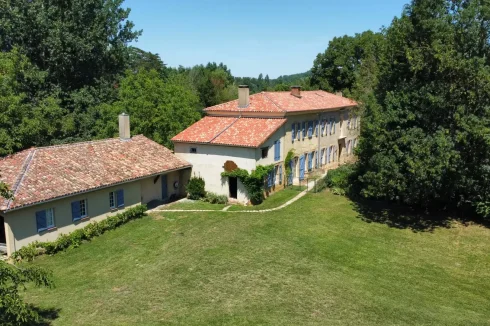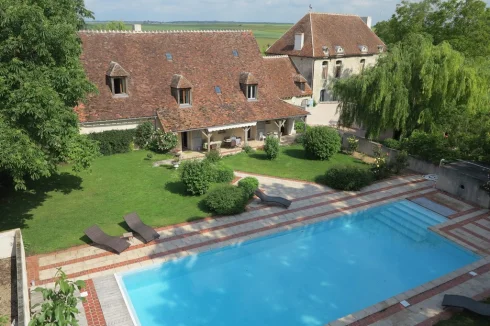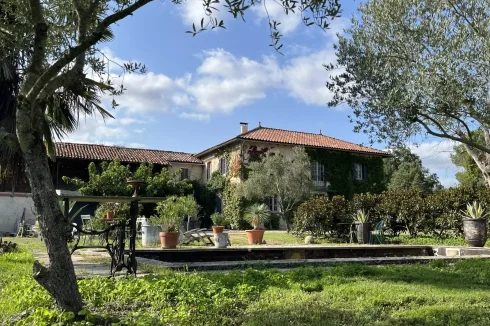Managing an Inherited Property in France
Thursday 03 March 2016
The process of managing an inherited property in France shared between two or more owners is not infrequently a source of dispute.
If you happen to be lucky enough to inherit from your parents a country pile or city apartment in France, which you share with your sisters and brothers (or others), the form of ownership you hold is called an 'indivision successorale'.
This simply means that you own a part of the whole property, with the remaining parts held by the other 'indivisaires'.
The operation of indivision is very prescribed in French law with specific rules and procedures in place concerning decisions about the management and sale of the property.
Most decisions require at least a two-thirds majority and major decisions (notably sale of the property) require a unanimous decision.
Inevitably, therefore, disagreement between the owners can lead to a blockage in decision making, one of the main reasons why so many properties across France remain empty following an inheritance.
Thankfully, the law also provides a means to manage conflict and unlock control of the property, although not without potential difficulty and cost.
Management of Property
In order to keep potential disputes to a minimum it is possible for joint owners to enter into a management agreement, called a convention d’indivision.
Such an agreement does not provide any guarantee that conflict will not arise, but at least it reduces the possibility they will occur.
Perhaps more importantly, it gets around the legal framework that would otherwise govern the management of a property held by joint owners.
Under such an agreement it is possible to fix the terms of occupation of the property, including, for instance, sharing of the school holidays, one of the frequent main sources of contention.
The agreement can also determine the conditions by which the property might be let to a member of the family, whether a rental would be payable, and the other main terms of a tenancy.
The obligations of each party would also be clearly specified in the agreement concerning payment of bills and maintenance, improvements and the provision of household general supplies eg wood, oil, cleaning products etc.
The agreement can specify the decision making process, where unanimity is required, and where a majority vote is enough.
Importantly, the agreement also needs to specify the circumstances when any of the owners can withdraw from it. Other than for exceptional circumstances, it really needs to oblige all signatories for several years.
Such agreements cannot have a duration longer than 5 years, although it is possible to provide for tacit continuation on an annual basis.
It is also not unusual to make one of the indivisaires the manager of the property, called the gérant. This person need not necessarily be the major shareholder of the property, but one in whom everyone has confidence and in agreement.
This person could then open a bank account in their name and deal with expenditure from funds jointly provided by the owners.
Finally, the agreement should set out the process for terminating shared ownership of the property. If one of the parties wishes to sell, the agreement normally provides for a right of first refusal to the remaining owners, (although such a general principle is already enshrined in law).
If the property is to be sold, and the owners cannot agree on the selling price, the agreement can provide for an independent valuation of the property, which would then bind all parties.
The agreement can be entered into at any time, but may be best done as as part of inheritance formalities.
The use of a notaire is obligatory, if only because it is necessary to register such an agreement relating to real estate with the land registry.
Inevitably there are costs involved as the fees of the notaire are a percentage of the value of the property. There are also land registration charges to pay. For a property valued at around €200K you need to budget around €2,000, although discuss the fees and taxes with the notaire before commencing the process.Sale of Property
Strictly speaking, outside of the terms of a convention d’indivision a decision on the sale of the property can only be made by a unanimous decision of all owners.
Nevertheless, one or more members of an indivision representing at least two-thirds of the ownership rights of the property may, with leave of a French court, proceed with the sale of the property, despite the inertia or opposition other joint owners.
However, for this to occur, a specific procedure must be followed, the results of which may not always be to the liking of any of the owners.The process is called a partage judiciaire.
It begins with a formal declaration in front of a notaire by the owners of their intention to sell. Those wishing to sell must own at least a two-thirds stake in the property.
Where there are only two owners it is still possible for one of them to bring an action to enforce the sale of the property, but the procedure is more onerous. The general principle here is that 'nul n'est contraint de rester dans l'indivision' - no-one is obliged to remain a joint owner.
Within a month of this above declaration, the notaire must notify the other owners of this intention, who have three months to state their opposition to the sale.
If they do so, or there is simply no response, the matter is referred to the Tribunal de Grande Instance (TGI), who will adjudciate on whether the property should be sold, a process that will take a minimum of two years.
Whether the court rules that the property be sold will depend on the circumstances of the case, but, generally speaking, unless there are overwhelming reasons why it should not be sold (that the sale does not infringe unduly on the rights of other joint owners) the court will grant the order for sale of the property.
The sale will then proceed by a judicial auction, a process that rarely results in the property being sold at the best price. The proceeds of a judicial auction are divided amongst the owners according to their stake in the property.
The generally poor results from a judicial auction is one reason why the threat of a partage judiciaire is frequently enough to bring about a voluntary prior agreement between the joint owners.
The most simple solution is then for the party wishing to sell to offer the property to the remaining owners who wish to keep it, provided of course they have the funds to buy it.
The use of majority voting is not possible where the inheritors are not of the age of majority, or who are otherwise unable to properly express their wishes, although it might be possible to arrange for an amicable sale of the property through guardianship arrangements if in place.
Neither is it possible where, for instance, one of the owners retains a life tenancy (usufruit) on the property.
Next Article: Private Vendors Property Picks
Thank you for showing an interest in our News section.
Our News section is no longer being published although our catalogue of articles remains in place.
If you found our News useful, please have a look at France Insider, our subscription based News service with in-depth analysis, or our authoritative Guides to France.
If you require advice and assistance with the purchase of French property and moving to France, then take a look at the France Insider Property Clinic.





